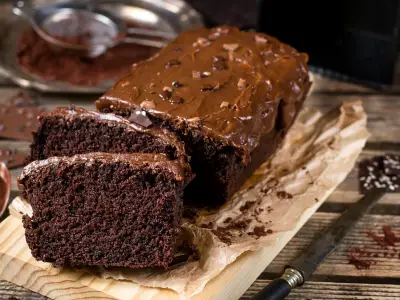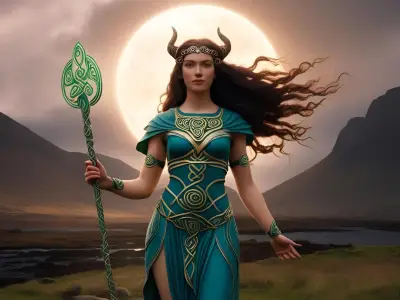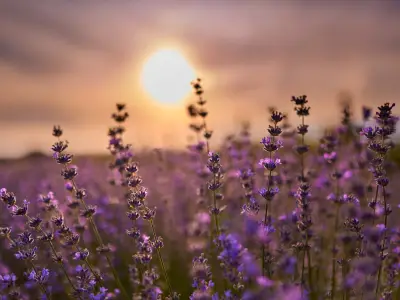Bragi, the Norse god of poetry and music, may not be a thunder-wielding warrior or a trickster god, but he plays a unique and deeply important role in the Norse pantheon. If you're curious about ancient storytelling and poetic tradition, or simply want to know more about the Norse gods, Bragi is a fascinating character to explore.
Jump to:
Recommended for you!
Best SellersWho Was Bragi in Norse Mythology?
Bragi, known as the Norse god of poetry, was known for his eloquence and wisdom. His name is believed to come from the Old Norse word bragr, meaning poetry, or the best, which perfectly suits his divine role. Described as wise and silver-tongued, Bragi was said to welcome fallen warriors into Valhalla with songs and tales that honoured their bravery.
He is often depicted with a long beard and a harp or lyre—symbols of his poetic and musical nature. His very presence brought calm, creativity, and a deep sense of reverence to the mythical halls of the gods.
Bragi held a special place among the Norse gods as the god of music, stories, and the spoken word. In a society that valued oral storytelling and skaldic poetry, he was nothing short of essential.
Bragi's Myths
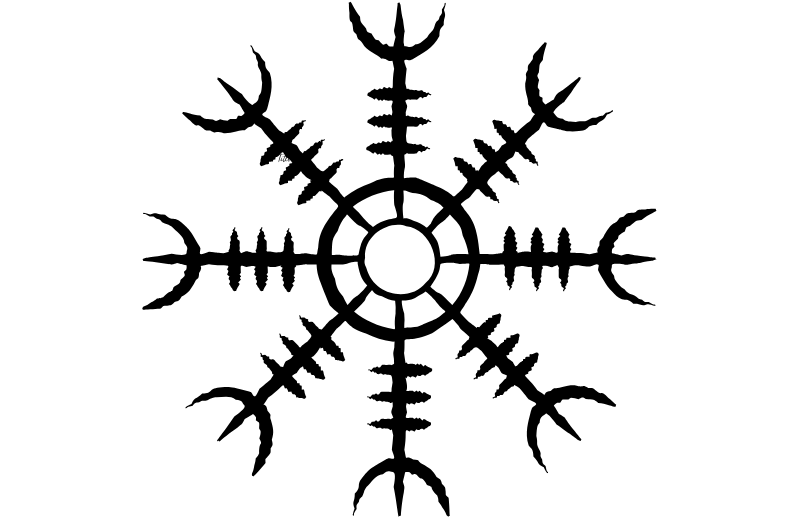
Although Bragi isn’t the central figure in Norse mythology, the stories that feature him highlight his importance as a wise and eloquent god.
Bragi in the Prose Edda
One of the most significant mentions of Bragi appears in the Prose Edda, a foundational text of Norse mythology compiled by Snorri Sturluson. In this work, Bragi is portrayed as a learned and poetic figure who often speaks in riddles and metaphor, embodying the intellect and artistry of a true bard.
Bragi’s Role in Valhalla
The Feast of the Gods
In another tale, Bragi attends a grand feast of the gods, where he participates in clever and philosophical exchanges with other divine figures. His presence at such events reflects his deep understanding of myths and cosmology, affirming his status as the Norse god of stories and wisdom rather than battle.
The Role of Bragi in Norse Storytelling
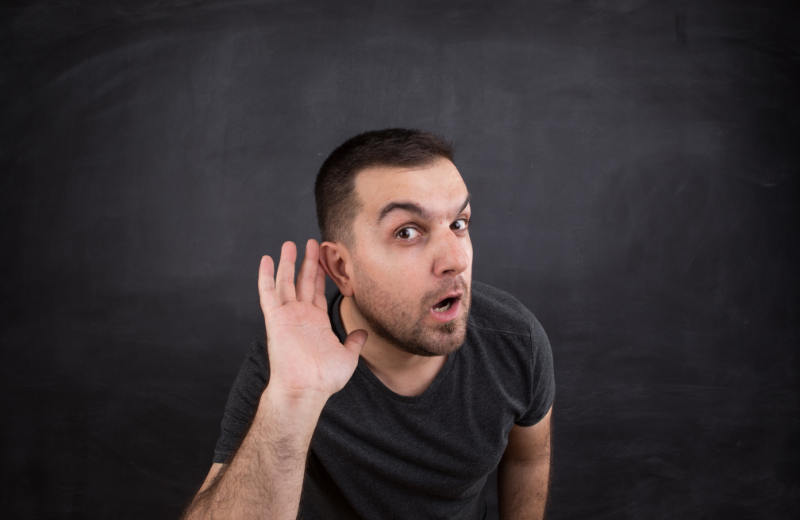
Bragi’s role in Norse mythology reflects the immense value the Norse people placed on storytelling. Skalds—Norse poets—were highly respected in Viking society, and it’s no surprise that a god would be created to embody their art.
He was seen as the divine source of inspiration for poets and musicians. Before a skald would recite or compose, they might call upon Bragi for guidance and creativity. He represented the bridge between memory, history, and art.
His association with words made him a key figure in maintaining oral tradition—an essential means of preserving culture in pre-literate societies.
What Powers Did Bragi Possess?
Unlike other Norse gods who wield physical strength or command the elements, Bragi's powers were of a different sort. He had the gift of divine eloquence—able to inspire, comfort, and influence through words alone.
His speech was said to be so powerful that he could calm disputes, uplift the grieving, and move even the gods with his poetry. In this way, his influence was felt not on the battlefield but in the heart and soul of Norse society.
Bragi's power also lay in his deep understanding of myth and history. As the Norse god of stories, he knew the tales of the cosmos—from creation to destruction. He was a living library of knowledge, making him invaluable in the mythic tradition.
Symbols Associated with Bragi
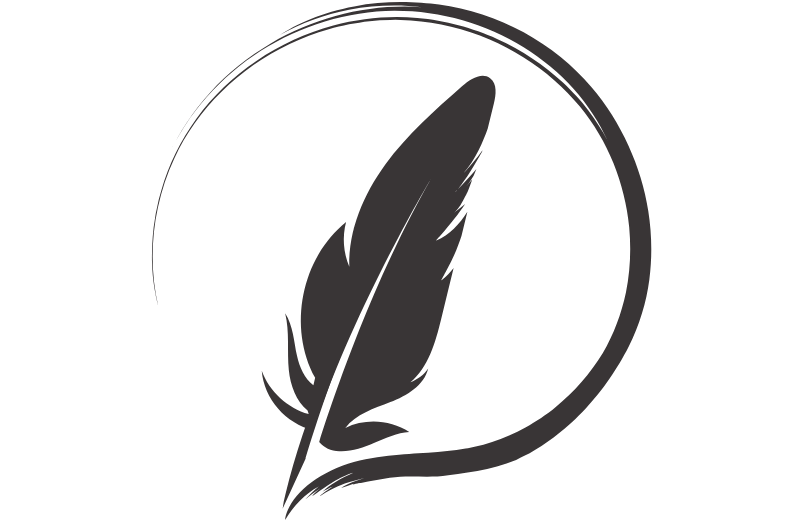
So, what are the symbols of Bragi? Several objects and images are commonly linked to this poetic god:
- The Harp or Lyre – As the Norse god of music, this instrument represents harmony, inspiration, and creativity.
- The Mead of Poetry – This mythical drink, created from the blood of the wise being Kvasir, granted the gift of poetry to those who drank it. Bragi is often associated with it.
- Runes – Ancient Norse runes are sometimes linked to Bragi, as they were used to write poetry and spells. He embodies the idea that words have power.
These symbols help us understand his character as one of beauty, intellect, and transformation.
Bragi's Lineage and Connections
Norse mythology doesn’t provide a vast number of stories centred on Bragi’s origins, but the sources that do mention him reveal significant ties to key figures within the Norse pantheon.
Bragi is commonly described as the son of Odin, the Allfather, which places him in direct descent from one of the most powerful gods. Some accounts also suggest his mother may have been Gunnlod, the giantess whom Odin encountered during his quest for the Mead of Poetry. This potential parentage connects Bragi not only to divine wisdom but also to the magical source of poetic inspiration itself.
He’s best known as the husband of Idunn (Iðunn), the goddess who guards the golden apples that grant eternal youth to the gods. Their union symbolises the fusion of creativity and renewal—poetry and vitality woven together in divine harmony. Through this partnership, Bragi’s legacy is further enriched, linking him to both the intellectual and rejuvenating aspects of the Norse cosmos.
Bragi's familial ties, though less frequently detailed than some other gods, place him in a position of quiet significance—connected to the wisdom of Odin and the life-giving powers of Idunn. His relationships reflect a balance between the power of words and the preservation of divine vitality.
Bragi in Modern Culture

While Bragi may not enjoy the mainstream popularity of other Norse gods, he continues to influence modern representations of Norse mythology through literature, games, and art.
He appears in Neil Gaiman’s Norse Mythology, where his character retains the wisdom and poetic charm of traditional sources. Bragi also features in various role-playing games and fantasy novels that draw on Norse themes, often portrayed as a bard or seer who embodies the power of words.
His legacy extends beyond books and media. The Viking Bragi, a river cruise ship operated by Viking River Cruises, is named in his honour. Bragi’s name on a modern mode of travel pays tribute to his role as a guide and storyteller, connecting past and present through myth and memory.
Bragi's Worship and Legacy
In ancient times, Bragi likely had his share of followers, especially among poets and musicians. Though no formal temples to Bragi have been found, it’s thought that Norse skalds paid tribute to him before performances, perhaps invoking his name for artistic blessing.
Today, his legacy lives on in the continued appreciation of poetic tradition and the celebration of Norse myths. Bragi’s memory is a reminder that words carry power and that creativity is sacred.
Recommended for you!
Best SellersFrequently Asked Questions About Bragi
How do you pronounce Bragi?
Bragi is pronounced “BRAH-gee,” with an emphasis on the first syllable. The 'g' is typically hard, like in “go,” rather than soft like in “giant.” In Old Norse, pronunciation could vary slightly by region, but “BRAH-gee” is widely accepted in modern usage.
What happened to Bragi at Ragnarok?
While Bragi's exact fate during Ragnarok, the end of the Norse world, is not detailed in surviving texts, many believe he perished alongside other gods in the final battle. However, as the god of poetry, some interpret that his influence endures even after destruction. Poetry and storytelling can survive chaos and death, allowing Bragi’s spirit to live on symbolically.
What does Bragi look like?
Bragi is typically depicted as a mature man with a long beard, symbolising wisdom and experience. He’s often shown holding a harp or lyre, surrounded by a calm and thoughtful aura. These visual traits reflect his deep connection to the arts and intellect rather than warfare. His appearance sets him apart from the more rugged, battle-ready figures of Norse myth.
Who are Bragi’s enemies?
Bragi doesn’t have named enemies in Norse myth in the same way gods like Thor or Odin do. However, he can be seen as standing in opposition to chaos and ignorance, often represented by trickster figures like Loki. Where Bragi promotes harmony through words, Loki sows discord through deception. Their contrasting traits reflect the Norse belief in balance between order and disruption.
Study Norse Mythology for £29
Norse mythology is full of fascinating gods, legends, and deeper meanings waiting to be explored. If you’re fascinated by Bragi and Norse mythology, why not take your knowledge further? At Centre of Excellence, you can enrol in the Norse Mythology Diploma Course for just £29! Learn about the gods, myths, and legends in greater depth and explore the rich history of the Vikings.











